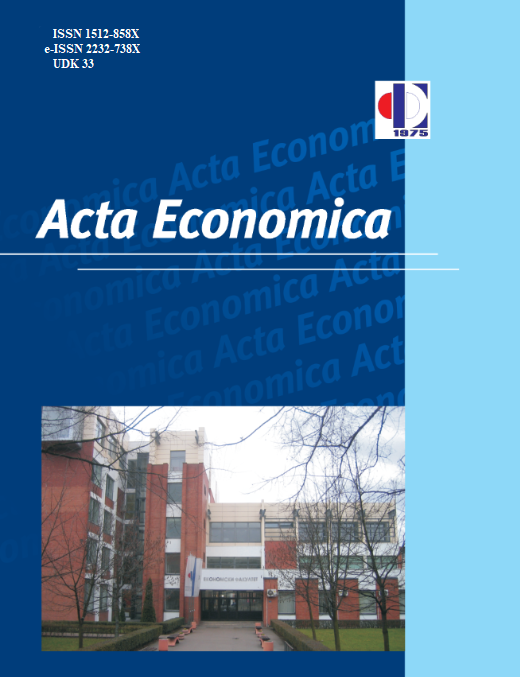INVESTIGATING THE EFFECTIVENESS OF STERILIZATION POLICY IN CONTROLLING MONEY SUPPLY AND CAPITAL INFLOWS IN NIGERIA
DOI:
https://doi.org/10.7251/ACE2032127NAbstract
Over the last decade, Nigeria has witnessed rising capital inflows that have kept the monetary authorities on their toes. This study, therefore, investigated the effectiveness of sterilization policy in controlling money supply and capital inflows in Nigeria. The need for this investigation arose from observed dearth of study in this area in Nigeria as well as the surge in capital inflows within the study period with its likely macroeconomic implications. The study would answer the question: (1) to what extent does sterilization effort of the Central Bank of Nigeria effective in controlling capital inflows in Nigeria, (2) to what extent is sterilization policy able to regulate money supply in Nigeria. By utilizing monthly data spanning a period of 2010-2018 under the framework of Two Stage Least Squares (2SLS), findings show that the sterilization policy of the CBN is effective in regulating money supply and depressing capital inflows both in period of normal capital inflows and in period of intensive capital inflows. We therefore recommend that in periods of sudden and volatile capital inflows, sterilization measure should be given a priority in order to stave off the negative consequences of such unexpected inflows. We also recommend fiscal prudency on the part of the fiscal authorities, especially within the period of high and volatile capital inflows just as the observance of a synergy between fiscal and monetary policies is not ruled out.

